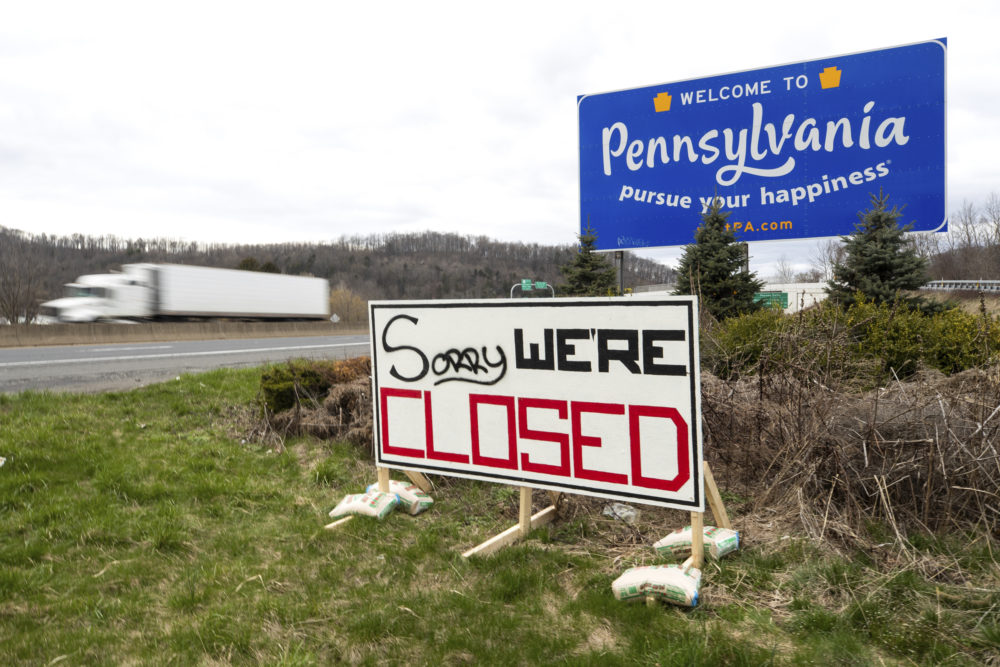Armed with expansive emergency powers, many of the nation’s governors are placing unprecedented restrictions on our lives to slow the spread of the coronavirus. They have closed schools, shut down huge numbers of businesses, and ordered people to stay in their homes. In areas hardest hit — such as New York City, New Jersey, and Michigan — daily briefings by the governors have become a form of must-see TV, dominating local and even national airwaves.
But with these extraordinary powers comes the extraordinary need for more oversight, not less.
And yet, as this crisis unfolds, so too does the continued deterioration of our local newsrooms, forcing publications to shut down, lay off workers, impose furloughs, and cut pay. When the consolidation of power is at its greatest, when the consequences are at their peak for every one of us, when we need journalists demanding accountability the most, we are instead watching the accelerated demise of an essential pillar of thriving local communities and our democracy.
Consider the stakes of the decisions coming from our state capitals. A designation that a small, family business is not “essential” or “life-sustaining” could mean the difference between solvency and bankruptcy. A determination that a business is “essential” exposes committed workers to the frontlines of the virus, putting them more at risk. A delay in the imposition of statewide mitigation efforts, such as “stay-at-home” orders, could cost people’s lives.
How are these decisions being made? Who is influencing them? Are they being carried out in a way that is fair and equitable to all? We all deserve the answers to these questions, and it’s the journalists who cover our state capitals who are the ones who can demand them. In their absence, we risk the kind of waste, fraud, and abuse we know will come from enhanced power, even in times when we agree extraordinary measures must be taken to save lives.
So we should all be alarmed that there are far fewer journalists covering state governments than in the past, and we should also be alarmed at how governments are at the same time curtailing transparency. In Pennsylvania, the state Office of Open Records has urged people not to file new public records requests unless they are urgent, and not all state government agencies are processing them. Other places, such as Hawaii and the District of Columbia, aren’t processing requests either, according to tracking by the Reporters Committee for Freedom of the Press.
While it’s reasonable to ask for accommodations given that many government workers are now remote and access to some documents may be impossible, there is a lot of critical data and information pertinent to the crisis that can and should be made available. We all have a right to know how these decisions are being made. And to get those answers, we need to support our local news organizations and unique efforts to restore accountability in our state capitals.
In September, we launched Spotlight PA, an independent, non-partisan newsroom focused on holding the Pennsylvania state government to account. The project, led by The Philadelphia Inquirer in partnership with PennLive/The Patriot-News in Harrisburg and the Pittsburgh Post-Gazette, now provides accountability reporting to 25 newsrooms across the state.
As part of that effort, supported by the Lenfest Institute for Journalism and more than a dozen other nonprofit institutions and community foundations, we brought a team of 12 to Harrisburg. That’s now paying dividends on an exponential scale, as Spotlight PA’s accountability reporting has been at the forefront of coronavirus coverage in Pennsylvania, providing people in communities in all corners of the state the news and information they need to stay safe and make informed decisions.
There are similar efforts underway in other parts of the country as once-fierce competitors band together to collaborate on essential coverage, and we must value them with our support. Because if we want to hold our leaders accountable during this crisis, we must be willing to pay for the journalists who are able to go out, do that work and get us the answers we deserve. Now more than ever, this is a vital public service, and all of us must value it that way.
But with these extraordinary powers comes the extraordinary need for more oversight, not less.
And yet, as this crisis unfolds, so too does the continued deterioration of our local newsrooms, forcing publications to shut down, lay off workers, impose furloughs, and cut pay. When the consolidation of power is at its greatest, when the consequences are at their peak for every one of us, when we need journalists demanding accountability the most, we are instead watching the accelerated demise of an essential pillar of thriving local communities and our democracy.
Consider the stakes of the decisions coming from our state capitals. A designation that a small, family business is not “essential” or “life-sustaining” could mean the difference between solvency and bankruptcy. A determination that a business is “essential” exposes committed workers to the frontlines of the virus, putting them more at risk. A delay in the imposition of statewide mitigation efforts, such as “stay-at-home” orders, could cost people’s lives.
How are these decisions being made? Who is influencing them? Are they being carried out in a way that is fair and equitable to all? We all deserve the answers to these questions, and it’s the journalists who cover our state capitals who are the ones who can demand them. In their absence, we risk the kind of waste, fraud, and abuse we know will come from enhanced power, even in times when we agree extraordinary measures must be taken to save lives.
So we should all be alarmed that there are far fewer journalists covering state governments than in the past, and we should also be alarmed at how governments are at the same time curtailing transparency. In Pennsylvania, the state Office of Open Records has urged people not to file new public records requests unless they are urgent, and not all state government agencies are processing them. Other places, such as Hawaii and the District of Columbia, aren’t processing requests either, according to tracking by the Reporters Committee for Freedom of the Press.
While it’s reasonable to ask for accommodations given that many government workers are now remote and access to some documents may be impossible, there is a lot of critical data and information pertinent to the crisis that can and should be made available. We all have a right to know how these decisions are being made. And to get those answers, we need to support our local news organizations and unique efforts to restore accountability in our state capitals.
In September, we launched Spotlight PA, an independent, non-partisan newsroom focused on holding the Pennsylvania state government to account. The project, led by The Philadelphia Inquirer in partnership with PennLive/The Patriot-News in Harrisburg and the Pittsburgh Post-Gazette, now provides accountability reporting to 25 newsrooms across the state.
As part of that effort, supported by the Lenfest Institute for Journalism and more than a dozen other nonprofit institutions and community foundations, we brought a team of 12 to Harrisburg. That’s now paying dividends on an exponential scale, as Spotlight PA’s accountability reporting has been at the forefront of coronavirus coverage in Pennsylvania, providing people in communities in all corners of the state the news and information they need to stay safe and make informed decisions.
There are similar efforts underway in other parts of the country as once-fierce competitors band together to collaborate on essential coverage, and we must value them with our support. Because if we want to hold our leaders accountable during this crisis, we must be willing to pay for the journalists who are able to go out, do that work and get us the answers we deserve. Now more than ever, this is a vital public service, and all of us must value it that way.



